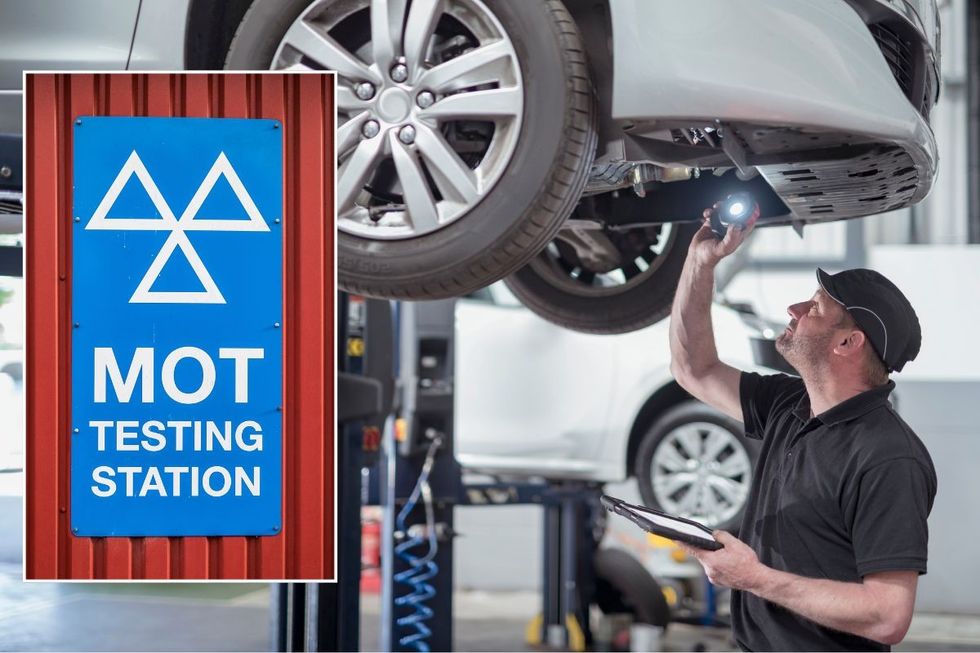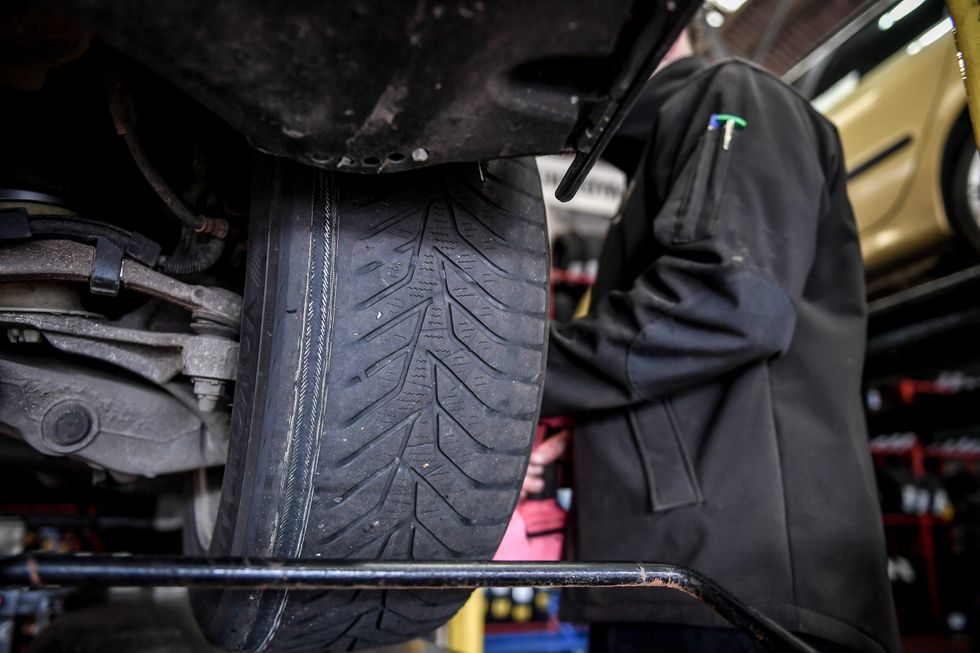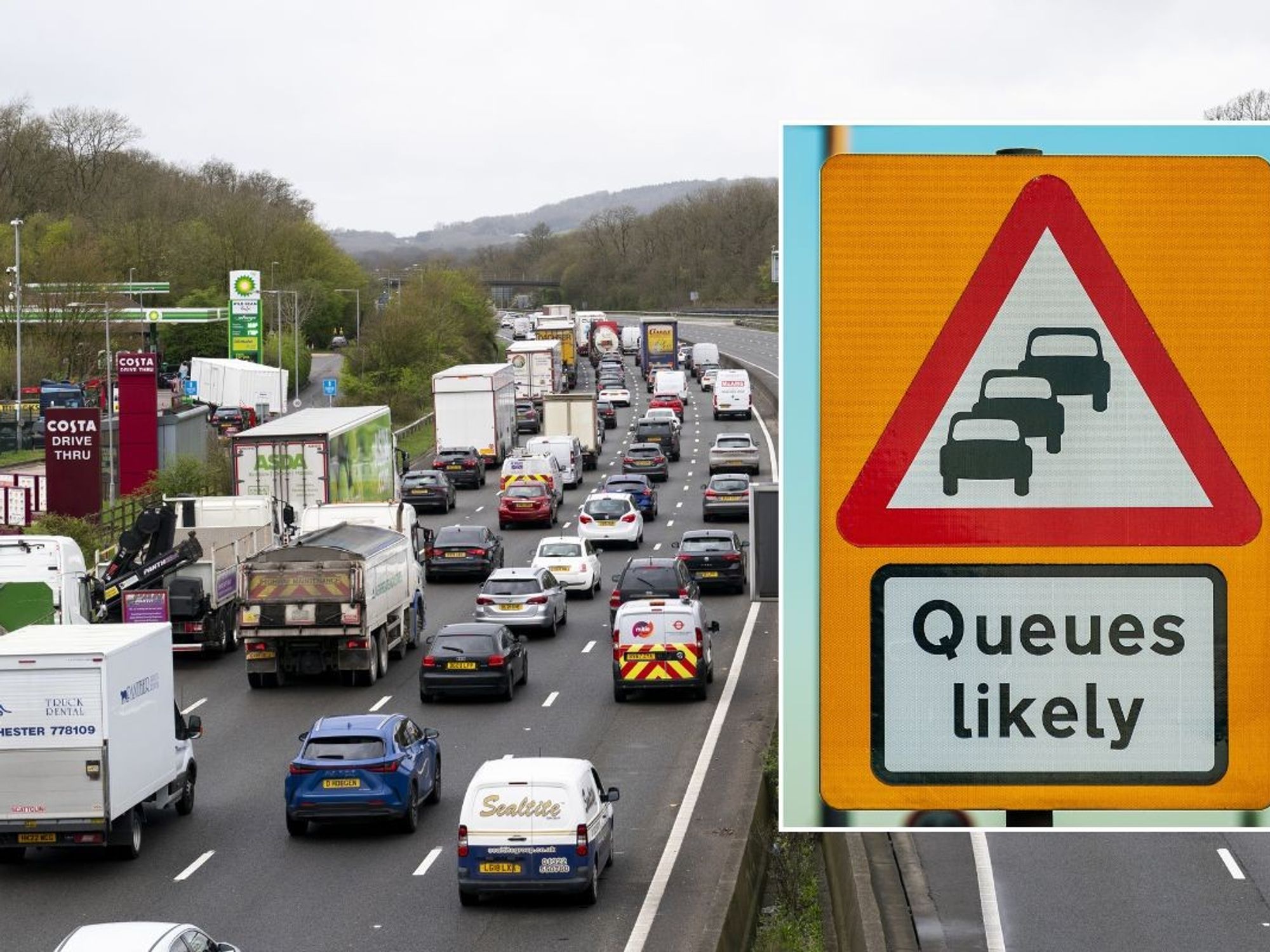Millions of drivers risk £10k fine for ignoring £94 car repair which can cause 'much more serious' issues
Many drivers are avoiding making repairs to their vehicles due to pressures from rising household bills
Don't Miss
Most Read
Trending on GB News
A new study has found that millions of drivers are being forced to postpone essential repairs to their vehicles due to financial pressures, potentially causing chaos on Britain's roads.
Over half of the garages surveyed (56 per cent) said they had seen people put off repairs to their vehicles as households grapple with rising bills.
The automotive sector's Ombudsman found that delaying these critical maintenance tasks can lead to significantly higher costs down the line and potentially dangerous driving conditions.
According to nearly eight in ten respondents (79 per cent), the most commonly delayed maintenance is replacing the engine timing belt at manufacturer-recommended intervals.
Do you have a story you'd like to share? Get in touch by emailingmotoring@gbnews.uk

Drivers are being urged to refrain from avoiding vital repairs to their vehicles
GETTY
This vital component, which ensures smooth engine operation, costs around £600 to change. Neglecting this maintenance can result in significant engine damage or complete failure.
Vehicle repairers noted that engine replacements carry an average bill of £5,400, nine times greater than the original cost of changing the belt. Most manufacturers recommend timing belt replacement every 60,000 to 100,000 miles.
The second most commonly delayed maintenance, cited by 72 per cent of survey participants, is engine oil and filter changes, which cost around £150.
Owners often postpone these changes even when required between annual services due to higher-than-average mileage, as experts warned that driving with oil beyond its recommended lifespan can cause it to thicken and collect dirt and grime.
This leads to reduced engine efficiency, overheating, or even complete engine seizure. When an engine seizes due to inadequate lubrication, the vehicle becomes unusable, resulting in much costlier repairs.
Bill Fennell, Chief Ombudsman and Managing Director of The Motor Ombudsman, said: "Our research has painted a stark picture of how vehicle maintenance can be left behind to make savings in the short-term, as well as how costs can mount up significantly if small problems are left to escalate into something much more serious.
"Planning ahead to budget for any unforeseen expenses is vital, because neglecting any kind of repairs may not only cause significant long-term damage to vehicles, but also lead owners to breaking the law, and compromising their own safety and that of others."
Over half of the repairers surveyed (58 per cent) reported that tyre replacements are frequently postponed by cost-conscious motorists.
This neglect carries serious safety implications as worn tyres below the legal minimum tread depth of 1.6mm significantly affect performance and grip.
The financial consequences can be severe too, with potential fines of £2,500 and three penalty points per illegal tyre, potentially leaving drivers with a massive £10,000 fine and a possible road ban. In comparison, the average tyre replacement costs just £94 per tyre.
Oil leaks represent the fourth most commonly delayed repair, with 49 per cent of vehicle repairers reporting customers postponing this maintenance, with the average oil leak costing around £355.
Leaving an engine to seep oil can result in damage to components and eventual starvation of lubrication, which can lead to complete engine breakdown and potentially require full engine replacement. In extreme cases, leaking oil may catch fire if it comes into contact with a hot exhaust.
LATEST DEVELOPMENTS:

Experts encourage motorists to check that their tyres meet the legal depth on a regular basis
PARebecca Pullan, Managing Director at The Motor Ombudsman-accredited Carmaster Garage in Harrogate, North Yorkshire, explained: "If a car is still usable, and a problem is not immediately visible, it may prove an inviting prospect to continue driving and delay incurring any repair bills.
"This often proves a false economy, and we are therefore reinforcing to motorists that it's absolutely crucial to visit a garage as soon as they identify something may be wrong."
Just under four in garages said brake pad replacements were the fifth most delayed issue, with average costs of £266 for a set of two pads per wheel.









